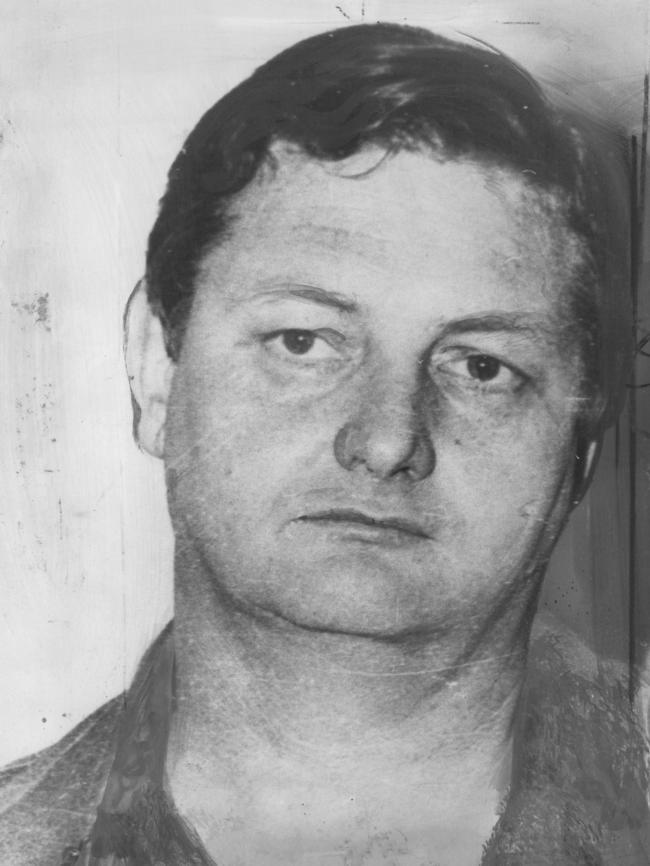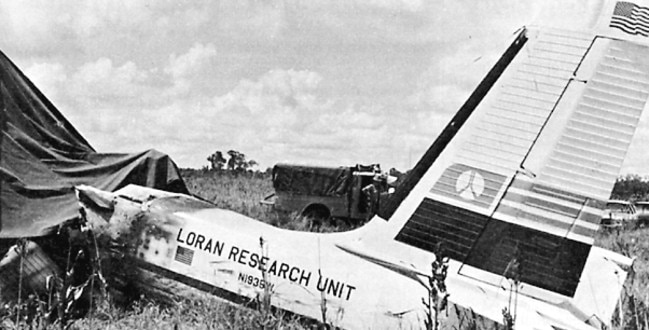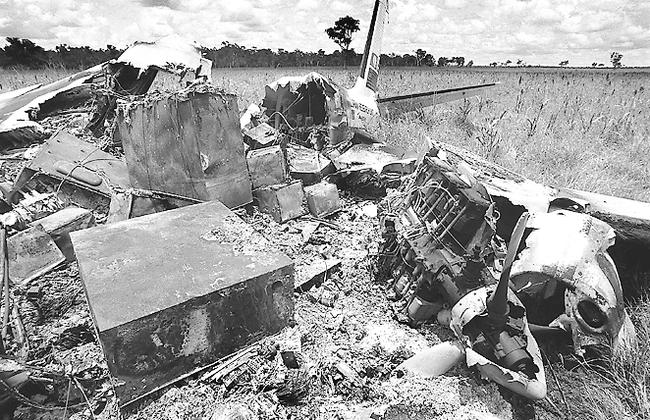Life and crimes of drug smuggler Donald Tait
FORGERY, bigamy, impersonation: Opportunist Donald Roy Tait had tried the lot before an attempted move to the big-league introduced him to households across Australia.

Today in History
Don't miss out on the headlines from Today in History. Followed categories will be added to My News.
FORGERY, bigamy, impersonation, false pretences: New South Wales-born opportunist Donald Roy Tait had unsuccessfully tried the lot before an attempted move into the big-league introduced him to households across Australia.
Tait’s attempt to flee a pursuing RAAF Hercules over the Northern Territory by crash-landing his twin-engine Piper Aero Commander near Katherine made national headlines in January, 1978.
Four months later Tait, 45, was sentenced in Darwin to six years and eight months’ jail for importing $4 million worth of marijuana, which he had tried to burn after crashing his plane. When he was sentenced on May 3, 1978, it was Tait’s first Australian drug sentence, but he was already on the run from a Bali jail where he had been serving 14 years for another drug shipment.
Over the next decade, Tait’s arrests and court appearances in Australia and Thailand, where in 1985 he became the first foreigner to face a death sentence for drug trafficking, were seldom out of the headlines.

Stout and bespectacled, he was an unlikely looking career criminal. Born in Casino on January 12, 1933, Tait left Lismore High School at age 18 and took a job with an insurance firm as a loss assessor. He was already 175cm tall and weighed around 100kg when he made his first court appearance in June 1951 at Brisbane Magistrates Court, charged with presenting himself as a “doctor” in northern NSW and Brisbane while not a member of the medical profession. He was fined £10, and less than 12 months later was in court again, charged in Sydney for illegally wearing an air officer’s uniform and assuming the false-designation of an RAAF officer at a NSW Air Force base, and fined £25.
At his Darwin trial in 1978, Tait’s lawyer Neil Halfpenny told the court Tait had married in Sydney in 1953, and by 1956 had been convicted and fined for passing false cheques. He then flew to North America, where he earned an arts degree at the University of Washington, Seattle, majoring in psychology.
While there he was also arrested by the US Immigration Service in Seattle and deported to Canada. He returned to the US, where he was allegedly arrested on interstate transportation charges and overstaying his visa, and sentenced to jail. Returning to Sydney in 1960, Tait was charged with passing false cheques and jailed for nine months. Five years later he fell in love with a Jewish woman visiting Australia. He went with her to Tel Aviv, married her and tried to become a Jewish citizen. Within months he was back in Sydney, this time to face a charge of bigamy, when he was sentenced to four years.



Tait moved to Singapore in 1970 to establish a family travel agency. In 1975 he bought his first aircraft, trading it a year later on a $90,000 Cessna, which he lost to the Indonesians when convicted of drug-running in Bali and jailed for 14 years. He escaped within a year, helped by an Australian drug smuggling syndicate. At the end of 1977, the court heard, this syndicate approached him to fly Buddha sticks valued at $3.75 million into the Northern Territory.
Tait’s bad luck held when his light aircraft was spotted by radar as it entered to the west of Darwin. Worse, a C-130 Hercules returning to Darwin was about to come in at the same time.
When Tait refused to answer calls for identification, Hercules pilot Flt-Lt Robert Haywood was instructed to intercept the aircraft near Darwin, but the pilot refused to follow the Hercules into Darwin. Tait instead took evasive measures, but the Hercules remained in pursuit until it passed its fuel-safety deadline and had to head back to Darwin.
But shortly afterwards the light air craft belly-flopped into the mud of a long-abandoned airstrip outside Katherine, where nearby farmers saw it come down and alerted police, who found 27 canisters containing 260,000 Buddha sticks in the burnt-out aircraft.

Already informed by the NSW police fraud squad that Tait would attempt to enter Northern Australia late in January 1978 by flying from Bangkok in a light aircraft, Darwin police put out an alert for Tait, also known as Donald Andrew Nahern and Peter Arthur Jones. When Tait was arrested days later, he was also wanted on fraud charges in NSW. During his Darwin trial Tait also told the court he had often flown birds overseas in “birds out, drugs in” backload runs.
Released from jail in 1982, Tait went to Bangkok where he was arrested in 1985 when 2kg of heroin was found at a Phuket hotel where he was staying. Convicted and sentenced to death by firing squad, Tait protested his innocence, insisting he only smuggled marijuana, not heroin. After two appeals, in February 1988 a Thai judge overturned his conviction and ordered him out of the country.
In December 1990 Tait was sentenced to 13 years and four months’ jail in Sydney after being convicted in October for his part in a $10 million heroin import racket.
